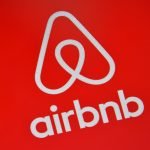Introduction.
Starting an Airbnb business might sound easy—list a property, get bookings, make money—but the reality is a bit more complex. Like any business, success in Airbnb hosting depends on research.
The more you know about your market, the more likely you are to price competitively, attract the right guests, and maximize your profits.
In other words, understanding what people want and where the demand is high will put you on the path to better occupancy rates and positive guest reviews.
Let’s break down the essentials of Airbnb market research, from understanding your target audience and assessing local competition to leveraging useful tools for data analysis.
By the end, you’ll have a clear roadmap to make smart, data-driven decisions for your Airbnb business.
What Is Market Research for Airbnb?
Market research for Airbnb is the process of gathering and analyzing information about the short-term rental industry in your area.
It helps you understand who your potential guests are, what they’re willing to pay, and what amenities or services they expect.
This knowledge is valuable because it lets you tailor your listing to meet demand effectively.
Let’s look at some of the most effective steps for thorough Airbnb market research.
How Can I Do Market Research For My Airbnb Business?
1. Identify Your Target Audience.
The first step is understanding who your guests will likely be. Think about:
- Travel Purpose: Are most guests in your area coming for business, tourism, events, or family visits?
- Group Size: Will your property attract solo travelers, couples, families, or groups?
- Demographics: Consider age, income levels, and even cultural backgrounds, especially if you’re in a popular tourist destination.
By identifying your target audience, you can tailor your property’s amenities and decor to meet their needs better.
2. Analyze Your Location.
Location can make or break an Airbnb listing. Use these factors to understand your area’s potential:
- Neighbourhood Appeal: Look at nearby attractions, restaurants, parks, and public transport options.
- Seasonal Demand: Some areas have seasonal peaks (like summer at the beach), while others are year-round destinations.
- Safety: Check crime rates and how they might affect guest perception.
A great location increases your property’s appeal, justifying higher rates and increasing booking frequency.
3. Study the Competition.
Analyzing other listings gives insight into your potential pricing, the amenities that matter, and the demand trends in your area.
- Use Airbnb’s Map Feature: Look at listings within a certain radius to see pricing trends.
- Read Guest Reviews: Reviews reveal what guests like or dislike about similar listings.
- Compare Amenities: Make a list of common amenities like Wi-Fi, a pool, or kitchen access, and see where you can differentiate.
4. Assess Market Demand and Occupancy Rates.
Market demand and occupancy rates determine whether there’s enough demand to justify your investment.
- AirDNA: This popular tool shows rental performance data, occupancy rates, average daily rates, and seasonality.
- Mashvisor: This platform provides insights on occupancy, expected rental income, and estimated returns, along with rental property analysis.
- Transparent: It’s another good source for tracking market demand trends, average occupancy, and benchmarking your performance.
Knowing these numbers helps you predict revenue and adjust pricing for slow seasons or special events.
5. Determine Pricing Strategies.
Understanding market demand and competition allows you to set an informed pricing strategy.
- Competitive Pricing: Set prices based on competitors’ rates but aim to provide better value, like offering unique amenities.
- Seasonal Pricing: Raise prices during peak seasons (e.g., holidays or local festivals) and lower them during slower periods.
- Dynamic Pricing Tools: Tools like Beyond Pricing or Pricelabs can automatically adjust prices based on market demand.
Having a flexible but data-backed pricing strategy is key to maintaining high occupancy.
Pros and Cons of Market Research for Airbnb
Pros:
- Increased Profitability: Pricing based on research can lead to higher returns.
- Better Guest Experience: Understanding guest needs allows you to improve your offerings.
- Reduced Vacancy Rates: When you understand demand trends, you can adjust pricing to maintain occupancy.
Cons:
- Time-Consuming: Initial research requires a lot of time and effort.
- Ongoing Adjustments: The market shifts frequently, so you’ll need to review and adjust your strategies regularly.
- Data Costs: Premium tools like AirDNA and Transparent come with subscription fees.
FAQ on Airbnb Market Research
1. What’s the best tool for Airbnb market research?
There’s no one-size-fits-all, but AirDNA and Mashvisor are popular among hosts for analyzing occupancy rates, demand trends, and seasonal pricing insights.
2. How often should I do market research for my Airbnb?
Review your market data every few months or whenever there’s a noticeable shift in your booking trends. Major events in your area or economic shifts are good cues to check in.
3. What if my property is in a small town or rural area?
Market research is still essential. Smaller towns may have limited demand but can attract niche travelers. Research local attractions, seasonal events, or amenities that appeal to your specific audience.
4. Can I start an Airbnb business without market research?
Technically, yes, but it’s not advisable. Without research, you risk pricing incorrectly or missing out on potential bookings, which can lead to lower profits and higher vacancy rates.
5. How do I know if the Airbnb market is saturated?
High competition and dropping occupancy rates are signs. Platforms like AirDNA offer market saturation metrics, showing the ratio of listings to demand.
Conclusion
Market research is a powerful tool for any Airbnb host, whether you’re just starting or looking to improve an established listing.
It can seem overwhelming initially, but each insight you gain about your target audience, location, competition, and demand trends will set you apart from others who rely on guesswork.
The big question is: What’s the one factor about your market that you think will shape your Airbnb strategy the most?





GIPHY App Key not set. Please check settings